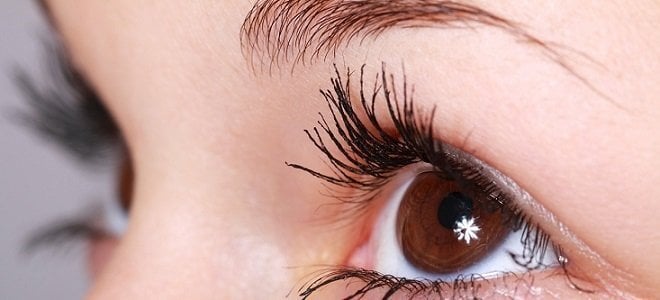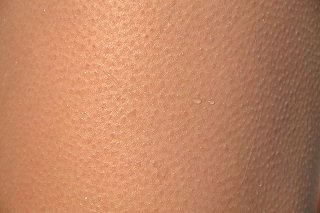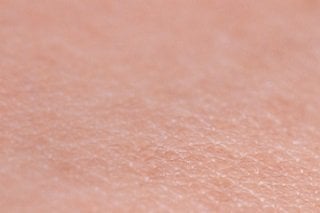
What’s Your Skin Saying About You?
When it comes to living the DIY Lifestyle, it’s all about the full approach – this includes your skin. Your skin can tell you some very important things about what’s going on inside your body so it’s not something to ignore. Check out this great post and see what your skin could be trying to tell you!
Your Skin and Your Health
Seeing changes in our skin can sometimes be the easiest way to determine if something is wrong with us without feeling the effects of internal pains.
Healthy skin should be hydrated and have a color that is consistent throughout the body.
So if our skin changes and becomes discolored, full of rashes, itchy or anything else that isn’t normal, it is trying to tell us something.
So what could your skin be trying to tell you?
1. Itchy Bumps On Wrists
 These itchy bumps, which are of a darker red color, are called lichen planus. This is a pretty common skin disease and the bumps are usually found on the inside of your wrists or sometimes even in your mouth (or both). However, they can also be found in other parts of the body from time to time.
These itchy bumps, which are of a darker red color, are called lichen planus. This is a pretty common skin disease and the bumps are usually found on the inside of your wrists or sometimes even in your mouth (or both). However, they can also be found in other parts of the body from time to time.
Lichen planus is not contagious and is not cancer. At this stage, it is not known how it is contracted, but it may be linked to hepatitis C and you will need to see your doctor and perhaps get your liver tested.
2. Bags Under The Eyes And Puffiness
Often bags under the eyes are harmless and are usually a result of a sleepless night. After your next good sleep, they should disappear. But what if the bags under your eyes and puffiness stick around even though you’re sleeping right?
This can actually be caused by a diet too rich in sodium, which has led to your body retaining water. If the bags under your eyes are persistent and severe, you should go and see your doctor.
3. Butterfly Rash
This is a rash that occurs on the face and is in the shape of a butterfly. The wings are on your cheeks and the body of the butterfly is on the bridge of your nose. Unfortunately, there are two common causes of a butterfly rash. One is simply dermatitis, which can be cured quite easily with medication.
However, these types of rashes are also associated with the autoimmune disease Lupus. Either way, you will need to go to your doctor right away and get further testing done.
4. Discoloration And Hyperpigmentation
Hyperpigmentation is caused by our bodies producing too much melanin, which is what gives our skin its color. Hyperpigmentation is often caused by excessive sun exposure however there are also other causes.
These darker patches often start on the elbows, neck, knees, groin, or armpits and spread slowly. Sometimes they give the illusion of a nice tan. Discoloration and hyperpigmentation can be early signs of diabetes so it is very important to watch what you eat to ensure you do not cause further damage to your body.
Talk to your doctor about lifestyle changes you can make to help prevent diabetes.
5. Chronic Itchy And Blistering Rash
 This can be known as dermatitis herpetiformis or duhring’s disease. These large-scale rashes are usually made up of blisters filled with a water-like fluid and commonly appear around the knees, stomach, back, or scalp.
This can be known as dermatitis herpetiformis or duhring’s disease. These large-scale rashes are usually made up of blisters filled with a water-like fluid and commonly appear around the knees, stomach, back, or scalp.
While it is not related to the herpes virus, its appearance is similar.
Dermatitis herpetiformis is actually a type of celiac disease and is most common in people of northern European or northern Indian people. Luckily it is relatively easy to treat with medication and a change in diet Discuss further with your doctor.
6. Dry, Itchy Skin
Are you suffering from dry and itchy skin? It could simply be the cold and very dry winter air, which is drying out your skin and therefore making it itchy.
If you think this is your cause one of the best things to do is to avoid soaking your skin such as doing dishes (use gloves), long baths, and very hot showers.
Try taking a slightly colder shower or use a humidifier if you have one. Also, try using thick natural moisturizer and apply as often as needed. If you feel the itching is very uncomfortable and excessive or if the itching is accompanied by other symptoms, you may have to see your doctor as it could be something more serious.
The good news is that many changes to our skin do not indicate a serious issue.
Wrap-Up
However, if you are ever unsure of what the changes to your skin mean, it is best to get your doctor’s advice as soon as possible.
The quicker you spot these changes, generally the easier it will be to treat them and the less discomfort you will experience. We would love to hear from you in the comments below, so we would love to hear about any experiences with the above.
- What Are Stretch Marks? How To Get Rid Of Stretch Marks - August 5, 2016
- 5 Foods That Are Good And Healthy For Your Skin - October 12, 2015
- 6 Things Your Face Can Reveal About Your Health - June 15, 2015


